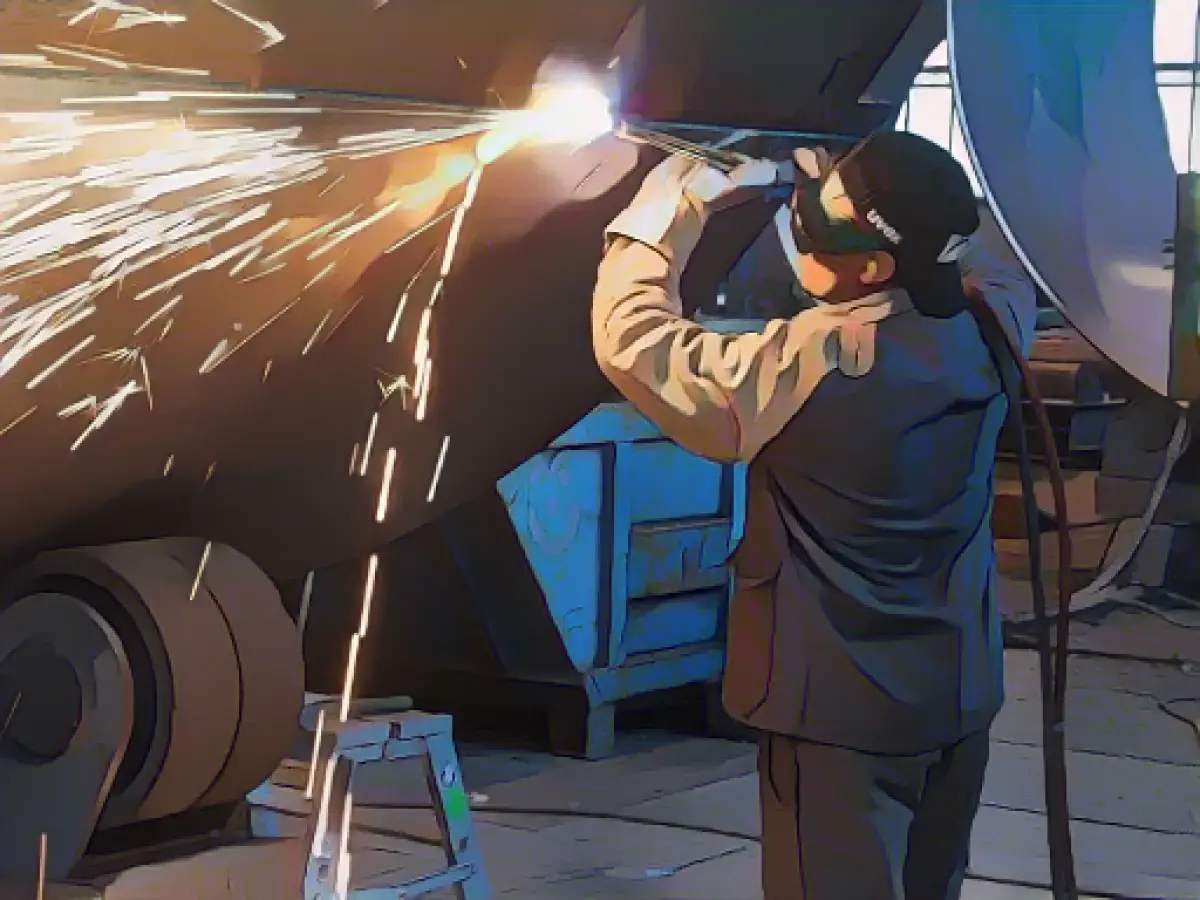What will change with the Skilled Immigration Act
Skilled workers are urgently needed in Germany. Politicians, business and experts agree that the gap in the labor market must be closed by immigration. The new Skilled Immigration Act, which will gradually come into force from this Saturday, is intended to help.
"We are creating a modern immigration law in line with the times and are therefore at the forefront worldwide," said the Federal Commissioner for Migration, Refugees and Integration, Reem Alabali-Radovan (SPD), to the German Press Agency. The law was overdue and courageous reforms had been neglected for too long. "Now it's 5 to 12."
But what is behind the law? Important questions and answers at a glance:
Didn't something like this already exist?
Yes, Germany has had a Skilled Immigration Act since March 2020. The law was passed by the black-red coalition in order to facilitate the immigration of qualified workers from non-EU countries. It has now been reformed because there is still a shortage of staff in many places, especially skilled workers.
Pau Palop-García from the German Center for Integration and Migration Research (DeZIM) said that the fact that the Skilled Immigration Act of 2020 did not have the desired effect was also due to the coronavirus pandemic. In addition, the bureaucratic burden for foreigners who want to come to Germany as working migrants is still high.
What is changing now?
What is new is the introduction of a so-called opportunity card based on a points system. The selection criteria for immigrants willing to work who choose this route include language skills, professional experience, age and ties to Germany. In future, foreign skilled workers must achieve a minimum salary of around 43,800 euros, instead of the previous 58,400 euros gross per year.
Asylum seekers who arrived before March 29, 2023 and have a qualification and a job offer will be able to apply for a residence permit as a skilled worker if they withdraw their asylum application. Up to now, you first had to leave the country and then apply for a work visa from abroad.
Anyone coming to Germany as a highly qualified specialist from outside the EU will in future not only be allowed to bring their spouse and children with them, but also their parents and parents-in-law. However, the prerequisite for family reunification is that the livelihood of the relatives is secured. Parents cannot apply for social benefits.
How serious is the situation on the labor market?
Germany's companies are currently unable to fill around 1.73 million vacancies, according to the Institute for Employment Research (IAB) in its quarterly survey. The Federal Employment Agency (BA) alone reported 748,665 unfilled vacancies in October.
According to the BA, the average time it takes to fill a vacancy is currently 153 days. According to the BA, this reflects the difficulties faced by many companies in finding suitable workers and specialists in a timely manner despite rising unemployment and underemployment.
What do associations say?
There is a desperate need for staff in the care and skilled trades sectors. However, the German Professional Association for Nursing Professions (DBfK) does not see the law as a solution to the problem of skilled workers. "On the one hand, because the shortage of skilled workers in the nursing professions is a global problem, and on the other, because the framework conditions for nurses in Germany are not attractive," said DBfK Federal Managing Director Bernadette Klapper.
"The best law is useless if there is too much bureaucracy to deal with and if there is a lack of implementation," said Jörg Dittrich, President of the German Confederation of Skilled Crafts (ZDH). Small and medium-sized companies in particular lack concrete advice and support measures in the search for and recruitment of skilled craftspeople abroad as well as local integration.
Does the law go far enough?
The Skilled Immigration Act points in the right direction, said Anja Piel, board member of the German Trade Union Confederation (DGB). "However, where there are large gaps in skilled workers, there are usually also structural problems such as poor pay and poor working conditions." It is now important to make better use of existing potential.
"The Skilled Immigration Act is an important signal of welcome," said the Confederation of German Employers' Associations (BDA). However, it could only be a first step. The migration administration is already completely overloaded. "Workers who already have an employment contract and could start tomorrow are waiting months to get started."
How much interest is there?
The Federal Office for Migration and Refugees (BAMF) offers advice for people abroad who are interested in working in Germany. According to the BAMF, there were 71,409 consultations on skilled worker immigration last year - an increase of 13 percent compared to the previous year.
Despite the difficult language, Germany is very popular with skilled workers abroad, said Sekou Keita from the IAB. In surveys, Germany often comes in third place, just behind Canada and the USA. "Germany benefits greatly from its image as a strong economy with good career opportunities," said Keita.
The Skilled Immigration Act's reform is needed due to the ongoing labor market shortage, especially for skilled workers, despite the existing Skilled Immigration Act from 2020. This new legislation aims to address the issue by introducing a points-based opportunity card and reducing the minimum salary requirement for immigration.
The new Skilled Immigration Act also allows asylum seekers with qualifications and job offers to apply for a residence permit as skilled workers, provided they withdraw their asylum application before March 29, 2023. This change in the law can significantly impact the migration of skilled workers to Germany.
Source: www.dpa.com








